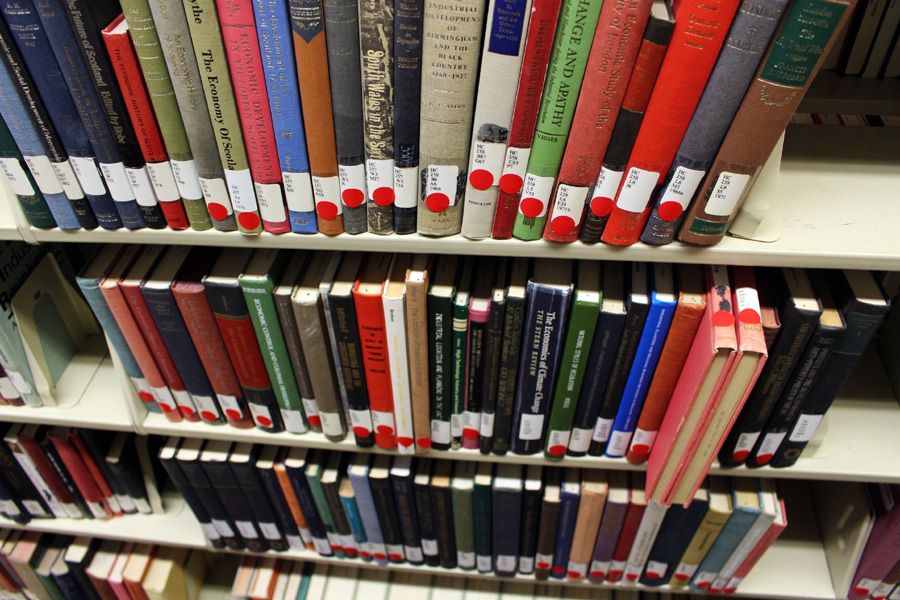Universities purge books as students opt to learn online


INDIANA - A library without books? Not quite, but as students abandon the stacks in favor of online reference material, university libraries are unloading millions of unread volumes in a nationwide purge that has some print-loving scholars deeply unsettled.
Libraries are putting books in storage, contracting with resellers or simply recycling them. An ever-increasing number of books exist in the cloud, and libraries are banding together to ensure print copies are retained by someone, somewhere. Still, that doesn't always sit well with academics who practically live in the library and argue that large, readily available print collections are vital to research.
"It's not entirely comfortable for anyone," said Rick Lugg, executive director of OCLC Sustainable Collection Services. "But it's a situation that has to be faced."
At Indiana University of Pennsylvania, half of collection going uncirculated for 20 years or more, university administrators decided a major housecleaning was in order. They came up with an initial list of 170,000 books to be considered for removal.
Faculty members who make their living in the stacks voiced outrage.
"Unbelievably wrongheaded" and a "knife through the heart," Charles Cashdollar, an emeritus history professor, wrote to the president and provost. "For humanists, throwing out these books is as devastating as locking the laboratory or studio or clinic doors would be for others."
Though "weeding" has always taken place at libraries, experts say the pace is picking up. Finances are one factor. It costs an estimated $4 to keep a book on the shelf for a year, according to one 2009 study. Space is another; libraries are simply running out of room.
And, of course, the digitization of books and other printed materials has dramatically affected the way students do research. Circulation has been going down for years.
Cashdollar argued that circulation is a poor indicator of a book's value, since books are often consulted but not checked out. Substantially thinning a library's print collection also ignores the role of serendipity in research - looking for one book in the stacks and stumbling upon another, leading to some new insight or approach, critics say.
Some students worry about missing deadlines if they have to wait for a book the library no longer has. Others, like 19-year-old freshman Dierra Rowland, say they're on board.
"If nobody's reading them," she said, "what's the point of having them?"
Associated Press

































